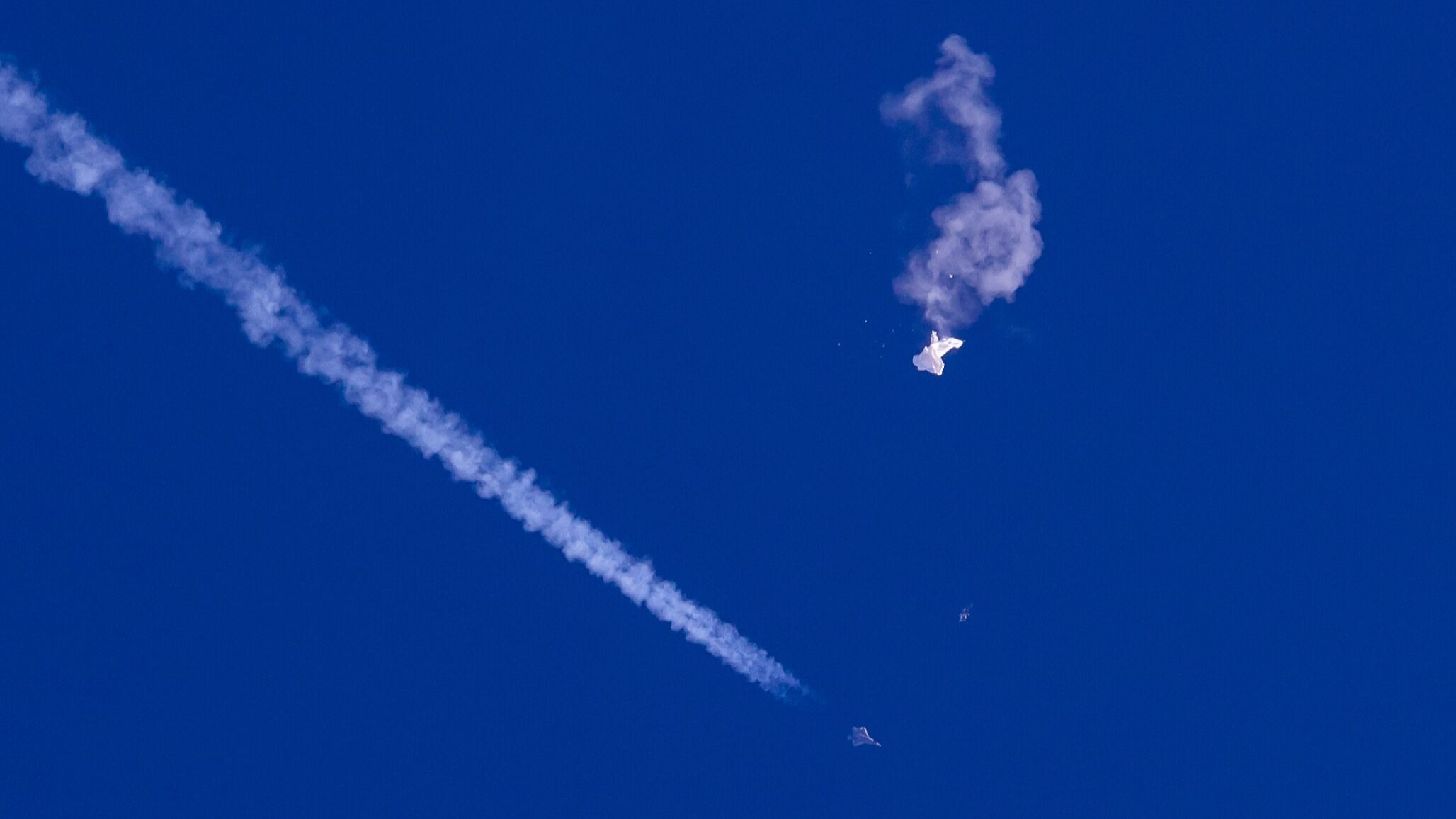China said Wednesday it will take measures against U.S. entities related to the downing of a suspected Chinese spy balloon off the American East Coast.
At a daily briefing, Foreign Ministry spokesperson Wang Wenbin gave no details and did not identify the targets of the measures.
China says the balloon was a unmanned weather airship that was accidentally blown off course and accuses the U.S. of overreacting in bringing it down with a missile fired from an F-22 fighter jet.
Since the Feb. 4 downing of the balloon, the United States has sanctioned six Chinese entities it said are linked to Beijing’s aerospace programs.
The U.S. House of Representatives subsequently voted unanimously to condemn China for a “brazen violation” of U.S. sovereignty and efforts to “deceive the international community through false claims about its intelligence collection campaigns.” Secretary of State Antony Blinken also canceled a visit to Beijing that many hoped would stabilize ties that have cratered amid disputes over trade, human rights, Taiwan and China's claim to the South China Sea.
While China denies the balloon was a military asset, it has yet to say what government department or company was responsible.
After initially expressing regret over the balloon's entry into U.S. airspace, China has returned spying accusations against Washington, alongside its threats of retaliation.
“China firmly opposes this and will take countermeasures in accordance with the law against the relevant U.S. entities that undermine China’s sovereignty and security,” Wang said at Wednesday's briefing.
China will “resolutely safeguard national sovereignty and its legitimate rights and interests," Wang said.
Also Wednesday, U.S. Ambassador to Japan Rahm Emanuel said the Chinese balloon's intrusion was part of a pattern of aggressive behavior by Beijing.
Emanuel noted China’s recent beaming of military-grade laser on a Philippine coast guard patrol vessel, the harassment of U.S. planes by Chinese jets and China's opening of illegal police stations in the U.S., Ireland and other countries.
“The balloon to me is not an isolated incident,” Emanuel said.
If China wants to be a respected member of the international community, “then you act appropriately to certain basic premises. that is you don’t open police stations in other countries ignorant of their laws as if your laws don’t have any boundaries,” he said.
“This is not exactly the qualities and characteristics of the good neighbor policy,” the ambassador said, referring to China's outreach to countries in the Asia-Pacific region.
On Tuesday, Japan’s Defense Ministry said at least three flying objects spotted in Japanese airspace since 2019 were strongly believed to have been Chinese spy balloons. It said it has protested and requested explanations from Beijing.
Senior lawmakers in Japan’s governing party on Wednesday said they were considering expanding the Self Defense Force law to also include violations of Japanese airspace by foreign balloons.
___
Associated Press writer Mari Yamaguchi in Tokyo contributed to this report.









